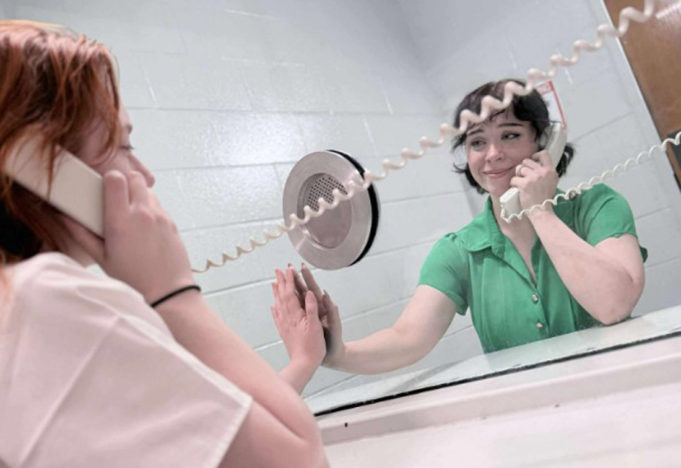In 2019, Gov. Greg Abbott signed House Bill 650, which provides new rights for female prisoners and training requirements for guards working in the women prison system.
Some provisions were sorely needed for women serving time in Texas prisons, such as requiring access to free and high-quality feminine hygiene products, having more time to spend with their newborn babies after giving birth in prison, and reducing the use of “shackling” to restrain pregnant prisoners.
Several local and national news outlets reported that the practice of shackling had been outlawed by the bill, but that’s not entirely true. There’s still a loophole that allows prisons to get around it.
The law prevents prisons from shackling pregnant prisoners up to 31 days after giving birth, but a provision in the law still allows prison directors to shackle a pregnant inmate if they feel she “will harm herself, her infant, or will attempt escape,” according to legislature records.
“Prior to the law,” said filmmaker and former prisoner Marci Marie Ray, “all these women were delivering their babies restrained to the bed, either by their ankles or their wrists. Obviously, women in delivery are low flight risks and less likely to be violent because they’re going through so much pain, but that officer could be having a bad day or the officer and that woman might have personality differences, and all of that becomes a valid safety assessment.”
Ray’s experiences as a prisoner and stories from inmates when she finished her sentence moved her to make the short film highlighting the need for further prison reform. Produced with the national criminal-justice reform nonprofit Represent Justice, Whispers Beyond Bars will make its Texas premiere at 7pm tonight/Fri at Tulips FTW.
Ray and her crew that included her kids and members of her family also shot Whispers Behind Bars in an old North Richland Hills jail facility that’s now a music studio.
Ray interviewed 20 Texas inmates who were pregnant while serving their sentences. Even though the law went into effect in 2019, 17 of the women told her they were restrained by prison officers at least one point during their pregnancy.
Those stories were adapted into the film’s narrative as seen through the lives of two women about to give birth: Maya (Hailey Hatfield), who is living outside of prison, and Inani (Ashley Tysor), who is pregnant and serving time for murder. The film juxtaposes the women’s lives as they become mothers, but the two eventually cross paths to reveal some horrifying truths about the treatment of pregnant inmates and even mothers with children serving time.
“It was really important for me to touch on the way our system separates families and holds women up to this higher standard,” Ray said. “We’re told things like if we cared about our kids, we wouldn’t be in prison. When families came to visit, we were degraded for having our children up there.”
Denise Beek, vice president of original storytelling for Represent Justice, said the practice of shackling pregnant inmates isn’t just a Texas problem. Most states have some kind of anti-shackling laws in place, but eight of them don’t have any, according to Advocacy and Research on Reproductive Wellness of Incarcerated People (ARRWIP).
“A lot of them suffer from malnutrition and mental health distress,” Beek said, “and we want to raise awareness of that and hopefully bring some more compassion and policy changes to do away with that. We want to make that illegal to take place inside of prisons.”
Ray’s film and her advocacy work for prison reform have already captured quite a bit of attention through Reformed Justice, the film’s first premiere in Los Angeles, and through her TikTok channel, where she talks about her experiences behind bars and how it affected her and her family. Actress, comedian, and former host of The View Rosie O’Donnell discovered Ray’s videos and reached out to help with the movie.
Ray said she made O’Donnell a creative consultant on the film to “mentor and help me make the story more than a trauma dump. It’s an actual story with a beginning, middle, and an end.”
Ray plans to take the film around the state for college-campus screenings at Texas A&M and the University of Houston as well as on the film festival circuit with the hope that more people will become aware of shackling and prompt further change from their elected officials. She also said she’s hoping Texas’ next legislative session will amend the law to ban shackling pregnant prisoners without exception.
“The film touches on maternal instinct and love that women, in general, face,” Ray said. “It touches on generational trauma when we incarcerate and lock away mothers, and I think the story as a whole is told in a way that is shocking and realistic.”
Whispers Behind Bars
7pm tonight/Fri at Tulips FTW, 112 St. Louis Av, Fort Worth. Free. 817-367-9798.












